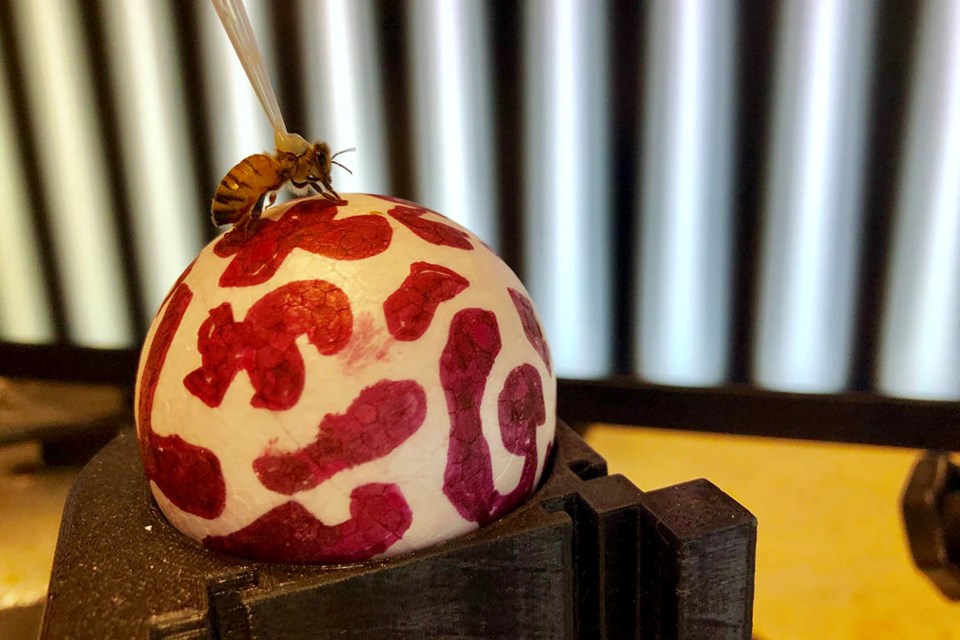SASKATOON – Research conducted by former University of Saskatchewan (USask) doctoral student Dr. Rachel Parkinson (PhD) under the supervision of Dr. Jack Gray (PhD), professor of biology in the College of Arts and Science, has shown that even at sublethal quantities, insecticides impair a honeybee’s ability to move in a straight line.
The results show that after exposure to the insecticides sulfoxaflor and imidacloprid, the honeybees suffer an impaired optomotor response, which is an innate orienting behaviour using wide-field visual motion information. Bees also use this type of visual information to calculate the distance they have travelled from the hive.
As a 2019 , Parkinson carried out the experiments at the in Woods Hole, Mass. Bees were tethered above an air-supported ball, creating a bee-sized treadmill. The apparatus was set up in front of screens that showed moving vertical black lines to mimic movement in the real environment. The bee’s walking path on the ball was recorded and analyzed to show their resulting ability to control their movement.
“The significance of the research is that this study shows for the first time that the ability of bees to encode and respond to visual information is impaired by insecticides. Bees use the same type of visual information that we tested in walking bees during flight to stabilize themselves and navigate,” said Parkinson. “The next step will be to test whether flying bees experience the same impairments.”
The research, which was , also shows that exposure to these insecticides led to increased cell death in the brain of the bees and affected a key gene expression in the central nervous system involved in detoxification.
“The major concern is that – if bees are unable to overcome any impairment while flying – there could be profound negative effects on their ability to forage, navigate, and pollinate wildflowers and crops,” said Parkinson.
“Parkinson’s work adds to the growing body of evidence of the negative effects insecticides have on bees,” said Gray. “With a better understanding of these effects comes a better chance of survival for these beneficial insects.”
Learn more about how Parkinson studied the honeybees .
— Submitted by USask media relations



